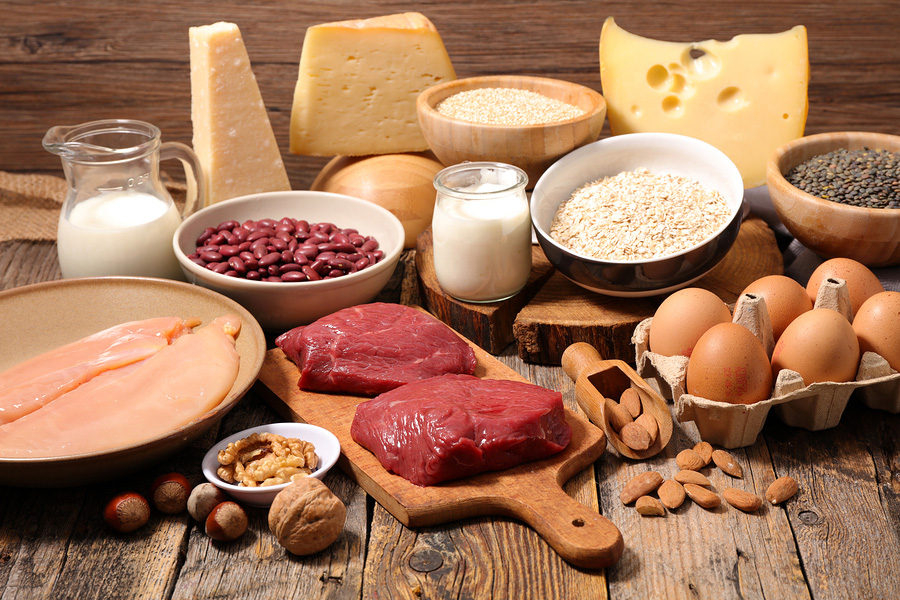There are thousands of different proteins in various sizes, shapes, types and unique roles within the body.
Some proteins make up certain structures of our body cells or help them move, whereas others act as metabolic enzymes, which act as coordinators of the body.
A protein molecule is a long chain of amino acids, which are organic compounds composed of nitrogen, carbon, hydrogen and oxygen, along with a variable side chain group.
They are categorized as essential, conditionally essential or non-essential depending on the ability of the body to make them or not.
If the body can't synthesize these amino acids, or produce them inside the body, it should be received exclusively from dietary protein.
Our body needs 20 different amino acids to grow and function properly.
Though all 20 of these are important for health, only nine amino acids are classified as essential.
Protein is broken down into amino acids in the digestive system, which help the body with various processes such as building muscle and regulating immune function.
Unlike non-essential amino acids, essential amino acids can't be made within the body and must be obtained through diet.
Therefore, if a particular protein source provides all the essential amino acids that the body requires, it is a good quality protein.
Identifying 'good quality' protein?
The major two sources of amino acids are the plants and animal protein.
Animal origin proteins such as eggs, milk are considered as good quality proteins due to its strong amino acid composition, while pulses, lentils, green gram, soya, are comparably equal sources of plant protein.
Soy products such as soya are rich sources of the amino acid tryptophan.
Protein from pulses like soya, dhal, and green gram provide good sources of fibre to ensure protection from non-infectious diseases such as diabetes and cancer.
Animal protein vs plant protein: Is one better than the other?
In general, most animal origin protein sources are considered complete protein sources because they contain all essential amino acids that the body needs to function effectively with high bioavailability and high digestibility.
Though animal proteins are an important source of amino acids, there are several potential health concerns do exist from a diet of protein consumed from primarily animal sources.
Others suggest that plant protein is superior to animal protein with respect to this aspect of safety.
With a proper combination of sources, vegetable proteins provide similar benefits as protein from animal sources.
Science tells us as that both plant proteins and animal proteins are comparable with advantages and disadvantages in either case.
Benefits of a diet high in plant protein
There are many studies done on the safety of vegetable proteins vs animal proteins.
When a person changes from animal proteins to vegetable proteins there is a rapid decline of certain parameters.
People with diets high in plant protein, tend to have a lower body weight, cholesterol and blood pressure levels.
It is well accepted that they have a lower risk of stroke, cancer and death from heart disease than non-vegetarians.
A primary advantage is lowering the risk for Type 2 diabetes, where the pancreas is producing insulin that the cells can't synthesize efficiently.
This is partly because eating one serving of beans, chickpeas or lentils per day can increase fullness, resulting in better weight management and weight loss.
Therefore, the health benefits of vegetarian diets are likely due to overall low fat content and correct lifestyles, rather than any inherent difference between plant and animal protein.
Finally, because our body doesn't store protein, it's critical to get enough of this macro-nutrient from diet each day.
Good health requires a holistic physical and nutrition-based approach.
Therefore, creating a daily menu plan that includes plenty of easily accessible animal or plant proteins at recommended levels will go a long way in operating each individual's body at maximum potential.
[The writer is Prof Shirani Ranasinghe, Senior Prof. in Biochemistry, Department of Biochemistry at the Faculty of Medicine - University of Peradeniya.]
























